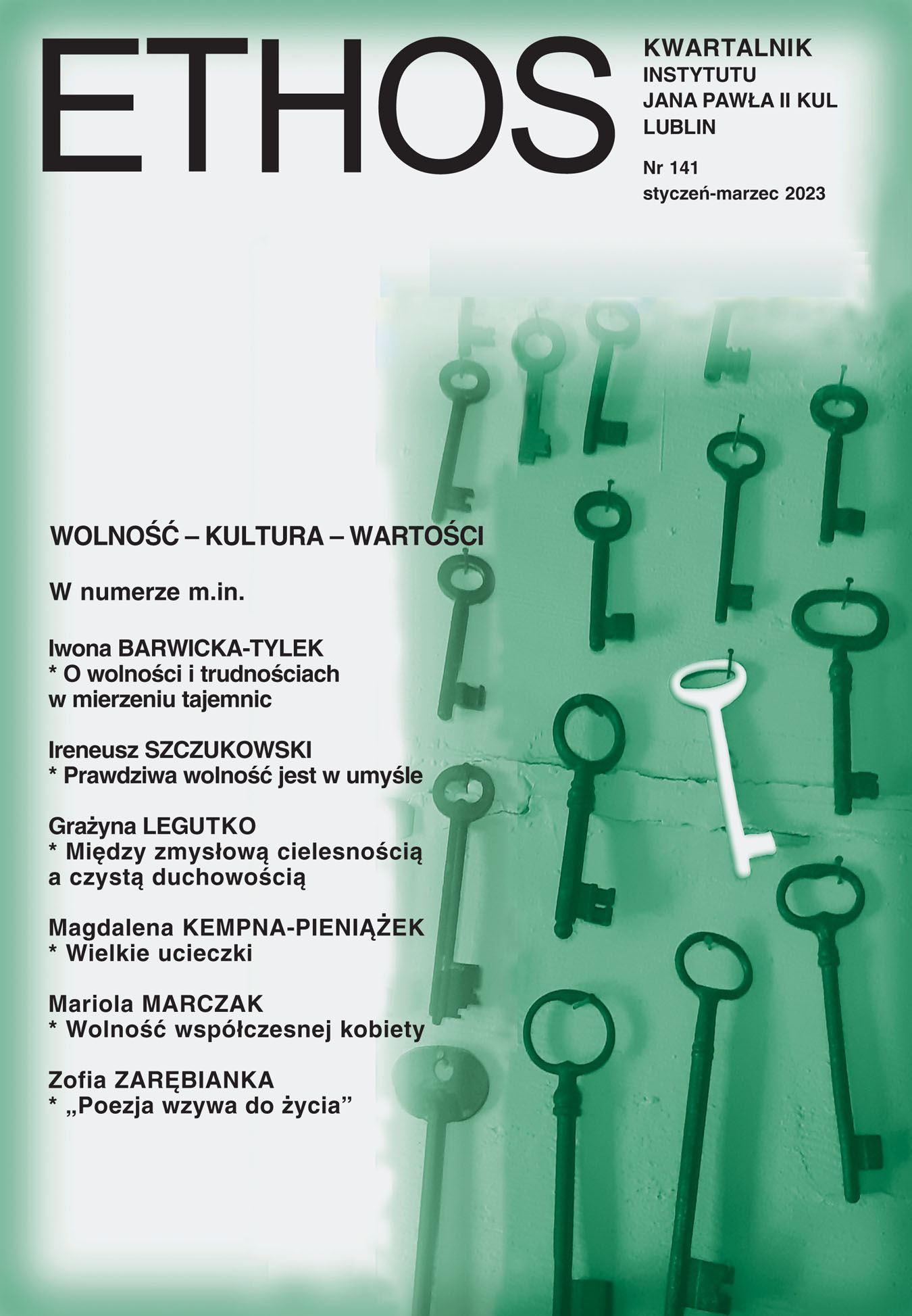O WOLNOŚCI I TRUDNOŚCIACH W MIERZENIU TAJEMNIC
ON FREEDOM AND THE DIFFICULTIES IN MEASURING MYSTERIES
Author(s): Iwona Barwicka-TylekSubject(s): Ethics / Practical Philosophy, Political Philosophy
Published by: Katolicki Uniwersytet Lubelski Jana Pawła II
Keywords: concepts of freedom; John Locke; Jean-Jacques Rousseau; liberalism; democratism;
Summary/Abstract: The article contrasts two strategies of thinking about freedom which have dif- ferent philosophical and—above all—political consequences. Within the first strategy freedom is approached as a universal value which can be variously conceptualized. However, while such particular interpretations of freedom differ from each other and are contingent on the historical context (which is demonstrated on the example of the contrast between Sartre’s and Pico della Mirandola’s notions of freedom), it is possible to engage them in a dialogue contributing to what Kant called “orienting oneself in thinking.” Being “in itself” a mystery, conceived as a value, freedom is the point of convergence of all its possible conceptualizations. The second strategy of thinking began to gain popularity in modernity, when values turned out to be obstacles in adjusting political philosophy to the new scientific paradigm. In place of dialectics, which proceeds from the particular to the general, scientific analysis was introduced with the aim of formulating a narrower yet more specific concept of freedom (and value as such). Owing to such operationalization, values have become entities to be produced and demonstrated to the world. Among the pioneers of the new thinking strategy was Thomas Hobbes, although his concept of Leviathan was not intended as a tool to measure freedom, but justice. The article discusses the shortcomings of such a thinking strategy, simultaneously pointing to two competing concepts of freedom which laid the foundations of, respectively, liberalism and democratism.
Journal: Ethos. Kwartalnik Instytutu Jana Pawła II KUL
- Issue Year: 36/2023
- Issue No: 1
- Page Range: 37-56
- Page Count: 20
- Language: Polish

